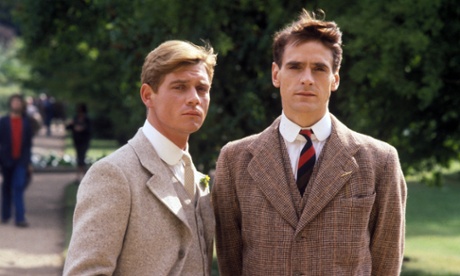
Last week, Mark Lawson wrote a blog titled Why television will never be a director’s medium. Here, Charles Sturridge, director of Brideshead Revisited and The No.1 Ladies’ Detective Agency, offers his response.
Great work needs vision which means exactly what it says: knowledge at the beginning of what the end will be like. This vision can exist in a single creative mind or be shared between several, but achieving it requires a unique mix of collaboration and leadership. The headline of Mark Lawson’s blog, ‘Why television will never be a director’s medium’, is both inaccurate and out of date. Inaccurate because its provocative use of the absolute denies many obvious exceptions, and out of date because it fails to acknowledge the revolution that is already underway in how we make and view programmes.
Any film (cinema or TV) is more than the sum of its parts. It’s not just money into light, as John Boorman memorably expressed it, but words, pictures, ideas, emotions, energy, inspiration and above all choices, stored within the sounds and images that we see on the screen. In a cinema film, and in some television programmes, there is only one director, and they are the only person who is common to every step of a complex process. Of course the film director is rarely alone as film-making is a series of intimate collaborations: director/producer, director/writer, director/actor, director/designer, director/sound mixer and so on; thousands of choices with one common denominator, which is why under UK law a director is considered an author, not of the script, not of the music, not of the design, but of the film.
Historically, early TV drama was live and studio-based, essentially a photographed play with the director locked in a control room which appears to the observer to emphasise writing and performance. However in the 1960s and 70s, as the medium matured with writers like Dennis Potter, Jim Allen, Arthur Hopcraft and Ian Kennedy Martin, there were also key directors like Michael Apted, Ken Russell, Mike Newell, Ken Loach and Jack Gold. Long-form television had specific requirements due to the industrialisation of the production process. A director who has to cast, prep and edit cannot shoot every day, so to keep the machine in perpetual motion, more than one was required. No single director could have the same influence on the whole and for many years this role was filled by the producer.
In the mid-90s, when broadcasters started to outsource creativity in the interest of economy, the producer joined the freelancers on the street and the balance shifted. The act of being commissioned became more urgent than the issues of physical production and the writer was the key component. The effect of this was more obvious in the US, where the writer started to take over some of the producer’s role, and the showrunner was born.
There is no monopoly on vision, and the move of the writer onto the production floor has created brilliant episodic television which has given new energy to the long-form series, the key economic determiner of many broadcast organisations. But great television, like a great movie, does not happen in the writer’s room alone. It is created by the same physical chemistry of word, image and performance that is the director’s art, and showrunners needed directors, and directors of course also started to become showrunners. Where once the traffic was one-way from television to features, now it goes in both directions, with Scorsese, Fincher, Soderbergh, Bay, Scott, Spielberg, Iñárritu and Cuarón all developing for television.
Today the market is changing again and the traditional gatekeepers of programme delivery, broadcast networks and cable, must now make room for a new wave of content-providers: Amazon, Netflix, Google, CNN, Al Jazeera ... the list goes on. No longer can we tell what a programme is like just from its transmission time, or which network it comes from; every programme must fight individually for our attention. In this market we scan actor, writer, producer and director with a more sophisticated sense of the personal choices of the creative group as we decide who will get our attention. The recently announced Netflix series based on The Queen is an alliance of writer Peter Morgan and director Stephen Daldry – great writing and great directing working together is what makes great television.
- Charles Sturridge is Chair of Directors UK.

